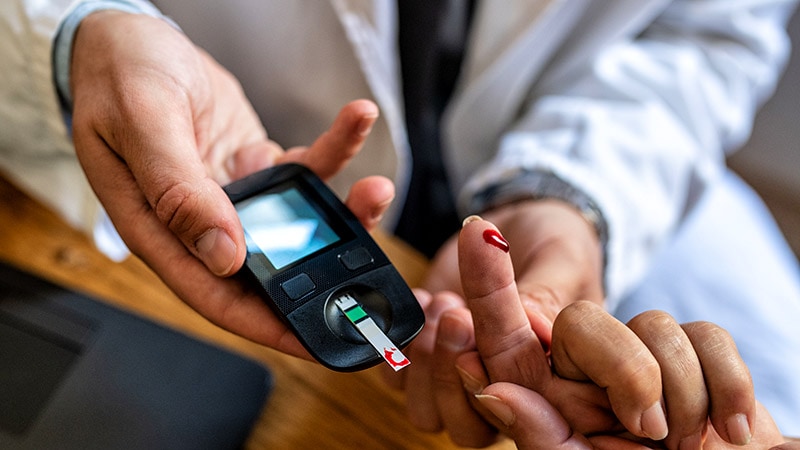Takeaway
- Glucagon-like peptide-1 (GLP-1) receptor agonists (GLP-1RAs) may reduce risk for nonfatal stroke in patients with type 2 diabetes (T2D), which is noteworthy because intensive glycemic control has a negligible role in reducing this risk.
Study design
- Meta-analysis of pooled data from 7 parallel-group, double-blind cardiovascular outcomes trials ranging from 1.3 to 5.4 years, with 27,977 participants with T2D randomly allocated to GLP-1RA and 28,027 to placebo.
- Funding:None disclosed, but 2 authors list personal industry disclosures.
Key results
- New nonfatal stroke incidence varied across placebo groups from 0.65/100 to 1.31/100 person-years.
- Use of GLP-1RA was associated with reduced risk for nonfatal stroke (HR, 0.85; P=.002).
- In single trials, only subcutaneous semaglutide and dulaglutide reduced stroke risk (39% and 24%, respectively).
- GLP-1RAs were associated with reduced risk for both fatal (HR, 0.81; P=.150) and total stroke (HR, 0.84; P=.001).
- Across all trials, there was nonsignificant association between HbA1c reduction and stroke risk (P=.096).
- No association (P=.247) between body weight reduction and stroke risk.
Limitations
- Aggregate data limit ability to delve further into subgroups.
- Stroke was a secondary endpoint in all trials.
- Patients with T2D with previous stroke poorly represented.
- Limited trial number, follow-up duration.
- No data on poststroke death, recurrent stroke.
References
References



